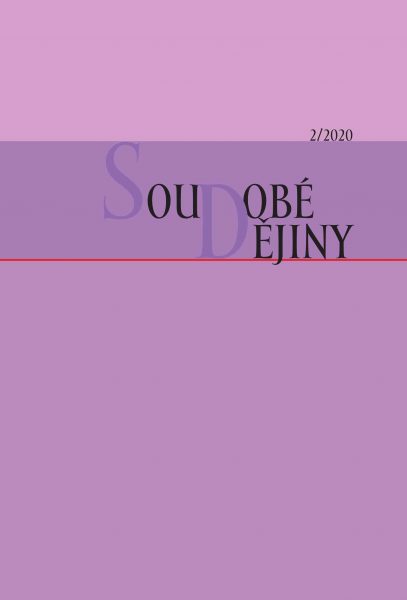Velká kniha bez vítězů a poražených
A great book without winners or losers
Author(s): Milan DucháčekSubject(s): History, Political history, Recent History (1900 till today), Interwar Period (1920 - 1939), Post-War period (1950 - 1989), History of Communism, Book-Review
Published by: AV ČR - Akademie věd České republiky - Ústav pro soudobé dějiny
Keywords: Czechoslovakia;Gustáv Husák;Communism;Communist Party of Czechoslovakia;historical biography
Summary/Abstract: The author ponders over, from the perspective of the genre of historical biography, the extensive biography of the Slovak Communist politician Gustáv Husák (1913–1991) who, ups and downs notwithstanding, ultimately became the Secretary General of the Communist Party of Czechoslovakia in 1969 and the President of the Czechoslovak Socialist Republic six years later. In his opinion, the book titled simply "Gustáv Husák" (Prague: Vyšehrad, 2017) deserves respect as an attempt to provide a comprehensive portrait of one of the key personalities of the Czechoslovak history in the 20th century and to address a broad audience outside the academic community, aswell as because of the huge quantity of information it contains. To the detriment of the matter, however, Michal Macháček encapsulated his narration into a too rigid biographic format. While his declared skepticism toward new methodologies may be acceptable, he suppressed himself as the author in the text of the book. He thus not only fails to disclose the values his book is based on, but also resigns to his own interpretations, as if he believed that the documentation presented in the book spoke for itself and that the evidential value of all sources was identical. This deficiency cannot be compensated by his efforts to present Gustáv Husák in a multitude of historical testimonies. Unfortunately, Macháček does not ask himself questions that he should ask as the author, including what Husák’s “historical greatness”, which he naturally assumes, consists in. His narration also completely left aside the issue of Husák’s attitude to law and of how Husák’s legal education was reflected in his own experience of injustice he had been a victim of in the 1950s and the repressions he was later responsible for as a leading politician.
Journal: Soudobé Dějiny
- Issue Year: XXVII/2020
- Issue No: 2
- Page Range: 366-380
- Page Count: 15
- Language: Czech

